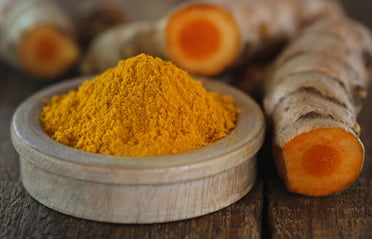eStoreRx™
Online Supplement Dispensary
eStoreRx™ is an easy direct-to-patient ordering & fulfilment program for lifelong wellness.
For over 40 years, Biotics Research Corporation has revolutionized the nutritional supplement industry by utilizing “The Best of Science and Nature”. Combining nature’s principles with scientific ingenuity, our products magnify the nutritional
eStoreRx™ is an easy direct-to-patient ordering & fulfilment program for lifelong wellness.
Biotics Research is proud to expand our commitment to education with the Wellness Unfiltered Pro Podcast. Each episode delves into key health topics and the clinical applications of our premier products. Through candid, insightful conversations, our team offers practical guidance to keep you informed and empowered as a healthcare professional.
February 19 2026
The journal Sleep Medicine Reviews recently published the results of a systematic review and meta-analysis examining melatonin supplementation among c...
 Back in February of 2010, the BBC reported on Ballabgarh, a village in northern India that had an unusually low rate of Alzheimer’s disease (AD)—lower than anywhere else in the world. University of Pittsburgh researchers had spent several years there, testing more than 5,000 subjects over the age of 55. They found that the rate of AD in India was less than 1/3 of the rate in the United States. The researchers also ruled out genetics, finding the same percentage of people carrying the APO4E gene in Ballabgarh as the United States.
Back in February of 2010, the BBC reported on Ballabgarh, a village in northern India that had an unusually low rate of Alzheimer’s disease (AD)—lower than anywhere else in the world. University of Pittsburgh researchers had spent several years there, testing more than 5,000 subjects over the age of 55. They found that the rate of AD in India was less than 1/3 of the rate in the United States. The researchers also ruled out genetics, finding the same percentage of people carrying the APO4E gene in Ballabgarh as the United States.
Ballabgarh is a farming community and people are physically active. Their diets are mostly vegetarian, and traditional Indian cuisine contains curry. A recent animal study found that curcumin supports neurogenerative health in transgenic mice, bred to get Alzheimer’s disease. Another study found that curcumin improved memory in amyloid infused rats. Curcumin can also disrupt Tau proteins and beta amyloid formation.
Although human studies are not widely available, one meta-analysis, published in 2016, looked at eight studies involving AD and curcumin. Curcumin was found useful for lowering circulating TNF-α concentration. In a recent review of clinical studies published in Geroscience, the authors state, “Both in vitro and in vivo studies have found that curcumin can significantly decrease oxidative stress, systemic inflammation, and obstruct pathways that activate transcription factors that augment these processes.”
One small human study, published in the American Journal of Geriatric Psychiatry, looked at 40 subjects between the ages of 50 and 95 who had mild memory issues (not true AD). For 18 months they were randomly given 90 mg of curcumin twice each day or a placebo. All the subjects were given standardized cognitive assessments at baseline and at six-month intervals. At the end of 18 months, memory test scores improve by 28% in the curcumin group compared to the controls.
At the start of the study, 30 of the subjects received PET scans to determine levels of tau proteins and beta amyloid. At the end of the 18 months the 30 subjects received a second PET scan. The scans in the subjects receiving curcumin showed significantly less amyloid and tau signals in the amygdala and hypothalamus when compared to those in the placebo group.
Related Biotics Research Products:  ,
, 
Submit this form and you'll receive our latest news and updates.
The journal Medicine (Baltimore) recently published the results of a meta-analysis of randomized and controlled trials e...
Learn more
*These statements have not been evaluated by the Food and Drug Administration. This product has not intended to diagnose, treat, cure, or prevent any disease.
© 2025 Biotics Research Corporation - All Rights Reserved
Submit your comment